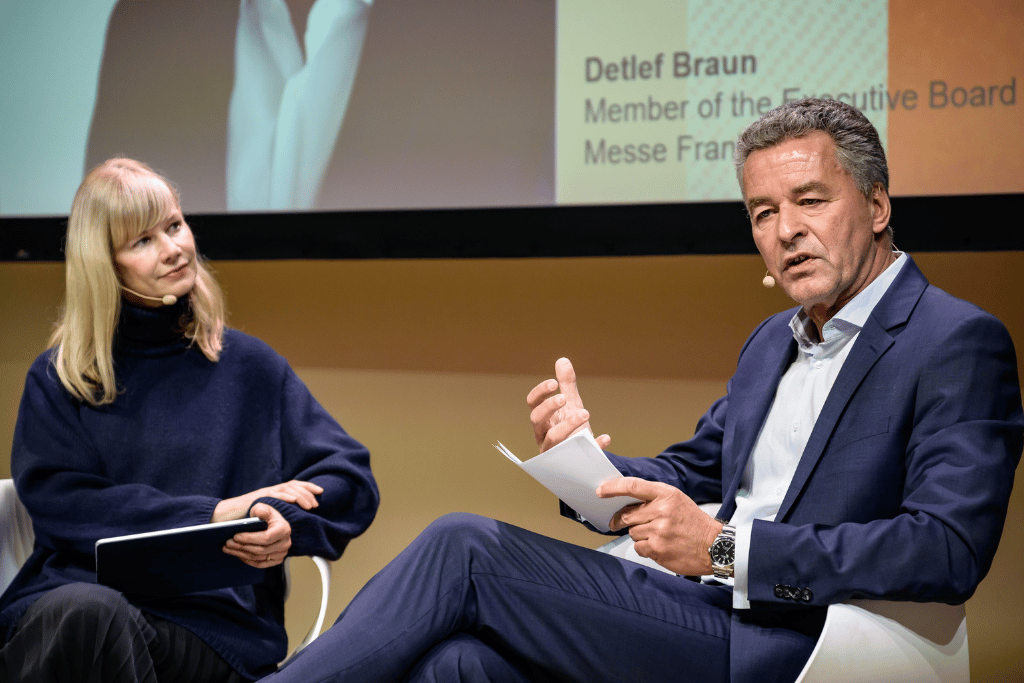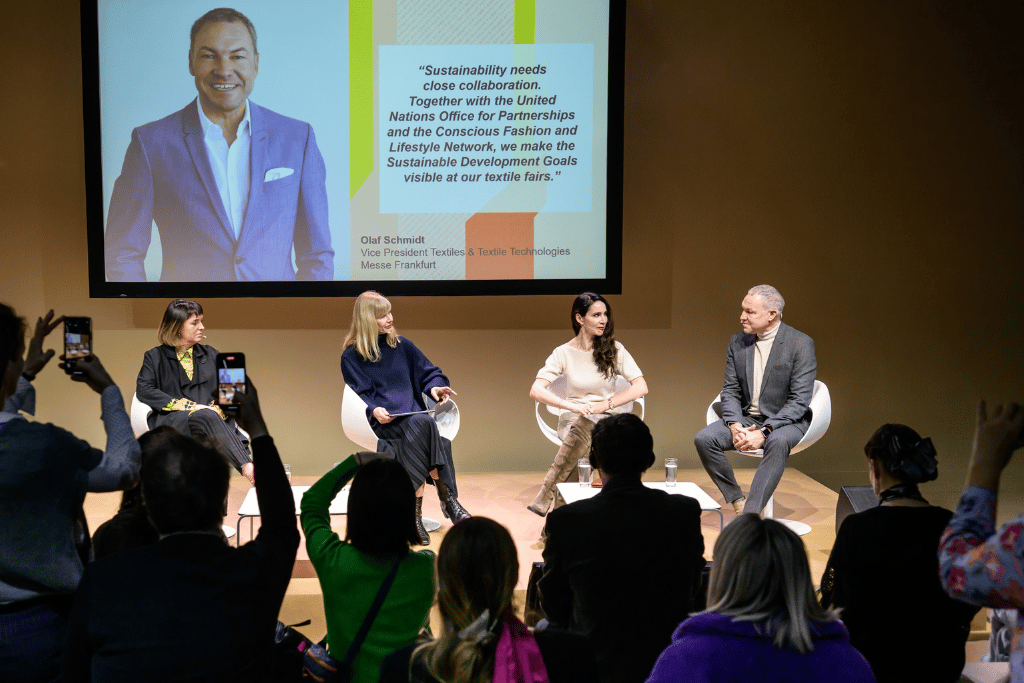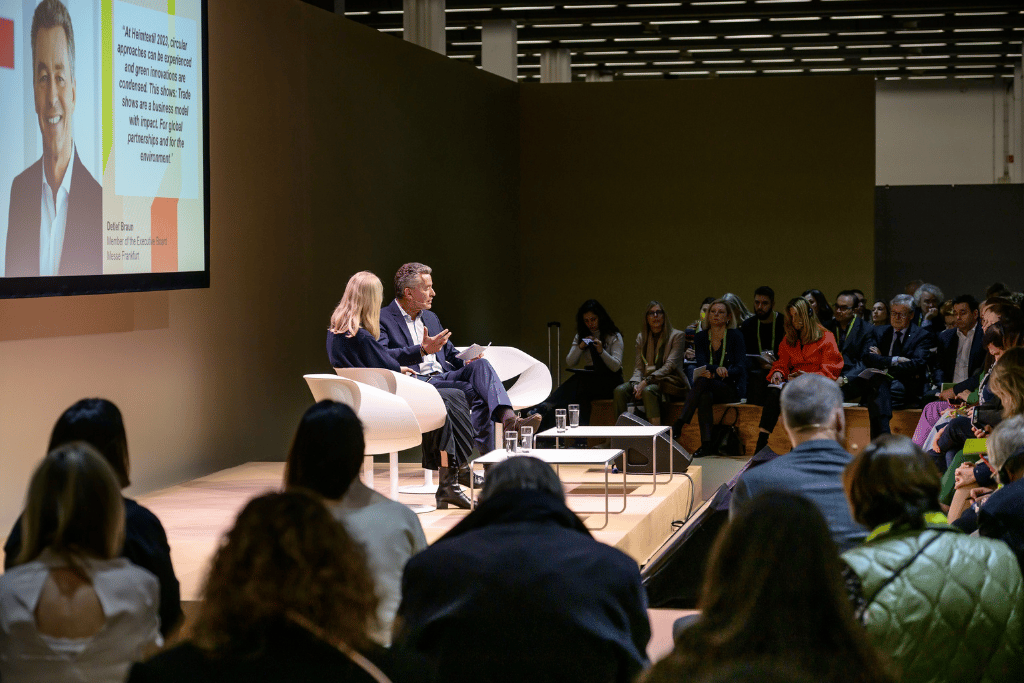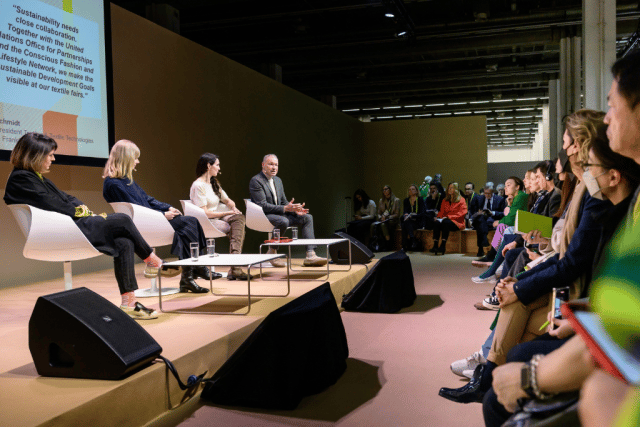As one of the most globally interconnected industries, future EU-wide supply chain legislations will pose challenges to the home textiles industry while enabling market opportunities. With 2400 exhibitors, an exhibitor internationality level of 94 per cent and participants from more than 120 countries, Heimtextil 2023 is the global stage where textile sustainability is holistically mapped – with products and innovations that show that scalable and sustainable innovations are not a contradiction in terms.

Panellists Caroline Till, Director and Co-Founder FranklinTill Studio, Prof. Dr. Anabel Ternès von Hattburg, futurologist and Executive Director of the International Institute for Sustainability Management, and Olaf Schmidt, Vice President Textiles & Textile Technologies of Messe Frankfurt, discussed the transformation towards sustainability from several perspectives under the moderation of Alexandra Bohn, Style Content Director of Frankfurter Allgemeine Zeitung Quarterly.
Heimtextil 2023: Experiencing sustainability holistically
Materials, supply chains, social responsibility: the panel talk highlighted how sustainability can be experienced holistically as a cross-cutting theme at Heimtextil.
Are entire collections produced in an environmentally compatible way? Do sustainability strategies include social responsibility? The one-hour Green Tours provide answers to these questions and enable an intensive exchange between visitors and exhibitors – led by independent sustainability expert Bernd Müller on behalf of Consulting Service International Ltd. The exchange with certifiers in the Green Village also enables buyers to think about sustainability in all its aspects. Textile certificates guarantee not only origin and quality level, but also proof that a product meets social and ecological standards. From 2023, the Green Village will also include companies that act in a holistically sustainable manner.

Heimtextil exhibitors are also increasingly focusing on transformation strategies that take into account multiple Sustainable Development Goals. These include innovative sustainable product designs – from fibres made of PET to linen in combination with other natural fibres such as hemp to bed linen made of cotton coated with cork. Photovoltaic systems to cover electricity needs from renewable sources are also examples – or filter systems that recycle wastewater generated by textile finishing.
“Long-term collaboration with trusted suppliers are important sparring partners on the path to transformation. Sustainability can only be achieved through close cooperation. That is why, together with the United Nations Office for Partnerships and the Conscious Fashion and Lifestyle Network, we are placing the Sustainable Development Goals at the centre of our global textile trade shows. And our Texpertise Network provides targeted impetus and, as a global network, promotes new partnerships,” says Olaf Schmidt.

Sustainability transformation through whole-system thinking
How to initiate transformation within companies? How to engage employees and what role do new competencies play in this process? In the panel talk, Prof. Dr. Anabel Ternès von Hattburg highlighted the relevance of overall systemic thinking, digital sovereignty and the acquisition of future skills. The futurologist illustrated the role self-efficacy and bottom-up approaches play in engaging employees.
“It’s time to change not just narratives, but mindsets. Through whole-systems thinking, acting from the perspective of a world fit for grandchildren, and acquiring future skills. This requires new evaluation criteria and, above all, a new leadership that starts with everyone themselves,” said Ternès von Hattburg.
Find out more about Heimtextil here.














